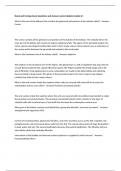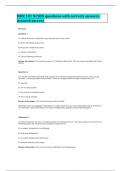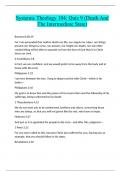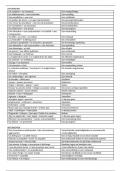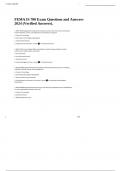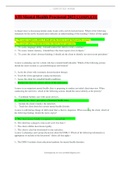Exam (elaborations)
Renal and Urology Exam Questions and Answers Latest Update Graded A+
- Course
- Institution
Renal and Urology Exam Questions and Answers Latest Update Graded A+ What is the area of the kidneys that contains the glomeruli and portions of the tubules called? - Answers Cortex The cortex contains all the glomeruli and portions of the tubules of the kidneys. The medulla forms the inner p...
[Show more]
